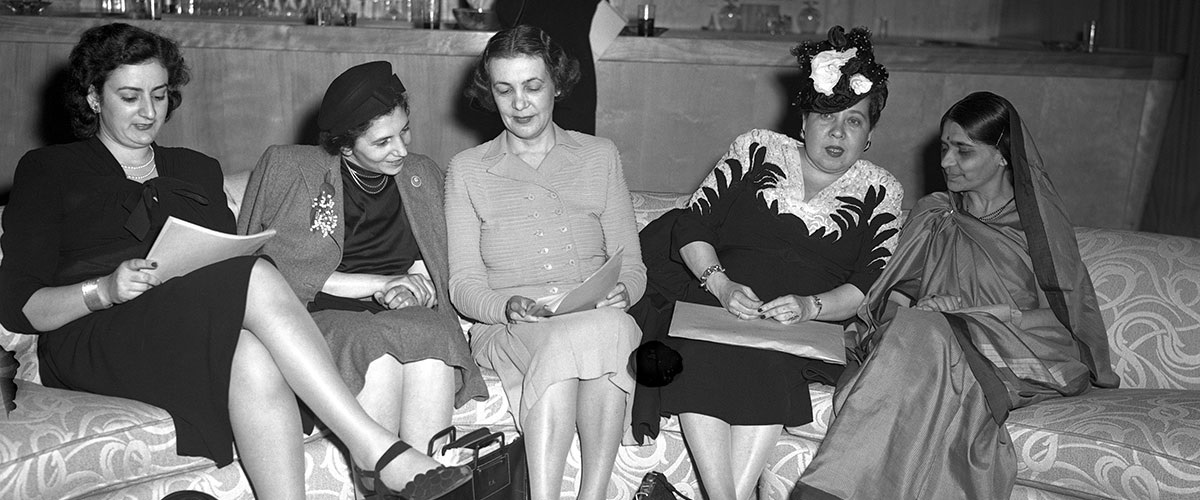Seventy years ago, the Universal Declaration of Human Rights (UDHR) was adopted. Eleanor Roosevelt is often given credit for the Declaration, but there were a number of other women who played a key role in the drafting process and ensured that the declaration addressed key aspects of gender equality.
First lady was Hansa Mehta from India. She made the proposal to change the phrase “all men are born free and equal” to “all human beings are born free and equal”, emphasizing that the UDHR is for both men and women.
Minerva Bernardino from the Dominican Republic also made a key contribution by proposing to include a specific reference to the “the equal rights of men and women” in the Preamble.
Lastly, by championing workers’ rights in Article 23, Evdokia Uralova from Belarus defended to include the principle of “equal pay for equal work”.

Thanks to the contribution of these women, key aspects of gender equality are addressed in the UDHR. Today we still work to put those principles into practice by mainstreaming gender considerations into all aspects of our work.



